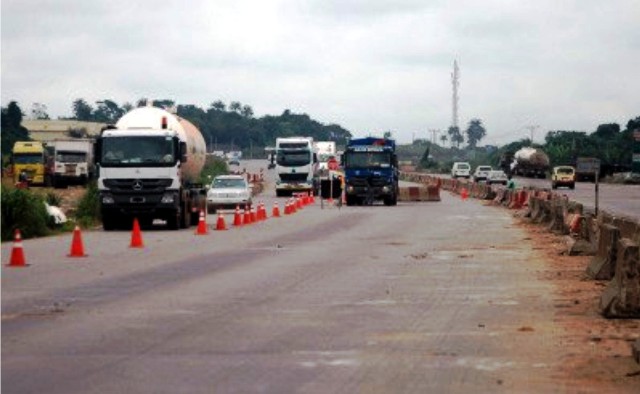Business
How Corruption Hampers Building Industry Dev – Expert

Former President of the Nigeria Institute of Building (NIOB), Mr Chucks Omeife, has identified corruption as a major problem affecting development of the building industry.
Omeife made the observation in an interview with newsmen in Lagos, yesterday.
He said that corrupt practices among developers and some authorities that grant building approval documents constitute greater part of the problems confronting the industry.
Omeife said that some developers, in an attempt to earn huge income, fail to obey the ethics, code and conduct of the industry.
He said that the building code states that every stage of building construction must be approved by the state’s physical urban planning office and other responsible authorities.
According to him, some developers, however, embark on building projects without first obtaining the necessary documents from the state government and relevant authorities.
“Even the few developers that claim to meet the responsible authorities for necessary approvals usually settle the offices with cash, such that necessary examinations and visitations to sites may be skipped.
“If every stage of building construction can undergo screening and have proper approvals as stated in the building code, the incidence of building collapse will be a thing of the past.
“This is because before the authority approves any project, it will ensure that appropriate human/material resources and other necessary conducts that will ensure structural stability of the building are in place,” he said.
Omeife urged the authorities in charge of granting the building approvals to be more proactive in discharging their duties, and to refrain from colluding with developers for selfish interest.
He also identified greed of some developers as a factor that needs to be addressed, if the industry must grow.
According to him, some developers usually cut corners during construction processes and in the building materials they use, in order to maximize profit.
He said that materials like rods, gravel, sand and cement, among others, as major materials for construction, must be mixed and applied in their right proportions for good results in construction work.
“Until operators in the industry refrain from some of the sharp practices, the sector may not record significant growth,” he said.
Business
Kenyan Runners Dominate Berlin Marathons
Kenya made it a clean sweep at the Berlin Marathon with Sabastian Sawe winning the men’s race and Rosemary Wanjiru triumphing in the women’s.
Sawe finished in two hours, two minutes and 16 seconds to make it three wins in his first three marathons.
The 30-year-old, who was victorious at this year’s London Marathon, set a sizzling pace as he left the field behind and ran much of the race surrounded only by his pacesetters.
Japan’s Akasaki Akira came second after a powerful latter half of the race, finishing almost four minutes behind Sawe, while Ethiopia’s Chimdessa Debele followed in third.
“I did my best and I am happy for this performance,” said Sawe.
“I am so happy for this year. I felt well but you cannot change the weather. Next year will be better.”
Sawe had Kelvin Kiptum’s 2023 world record of 2:00:35 in his sights when he reached halfway in 1:00:12, but faded towards the end.
In the women’s race, Wanjiru sped away from the lead pack after 25 kilometers before finishing in 2:21:05.
Ethiopia’s Dera Dida followed three seconds behind Wanjiru, with Azmera Gebru, also of Ethiopia, coming third in 2:21:29.
Wanjiru’s time was 12 minutes slower than compatriot Ruth Chepng’etich’s world record of 2:09:56, which she set in Chicago in 2024.
Business
NIS Ends Decentralised Passport Production After 62 Years
Business
FG To Roll Out Digital Public Infrastructure, Data Exchange, Next Year
-
Maritime3 days ago
Minister Tasks Academy On Thorough-Bred Professionals
-
Maritime3 days ago
Customs Cautions On Delayed Clearance, Says Consignees May Lose Cargo
-
Maritime3 days ago
Lagos Ready For International Boat Race–LASWA
-
Maritime3 days ago
NCS Sensitises Stakeholders On Automated Overtime Cargo Clearance System
-
Maritime3 days ago
Shoprite Nigeria Gets New Funding to Boost Growth, Retail Turnaround
-
Politics3 days ago
I Would Have Gotten Third Term If I Wanted – Obasanjo
-
Sports3 days ago
Bournemouth, Newcastle Share Points
-
Sports3 days ago
Zidane’s Son Switches Allegiance To Algeria

